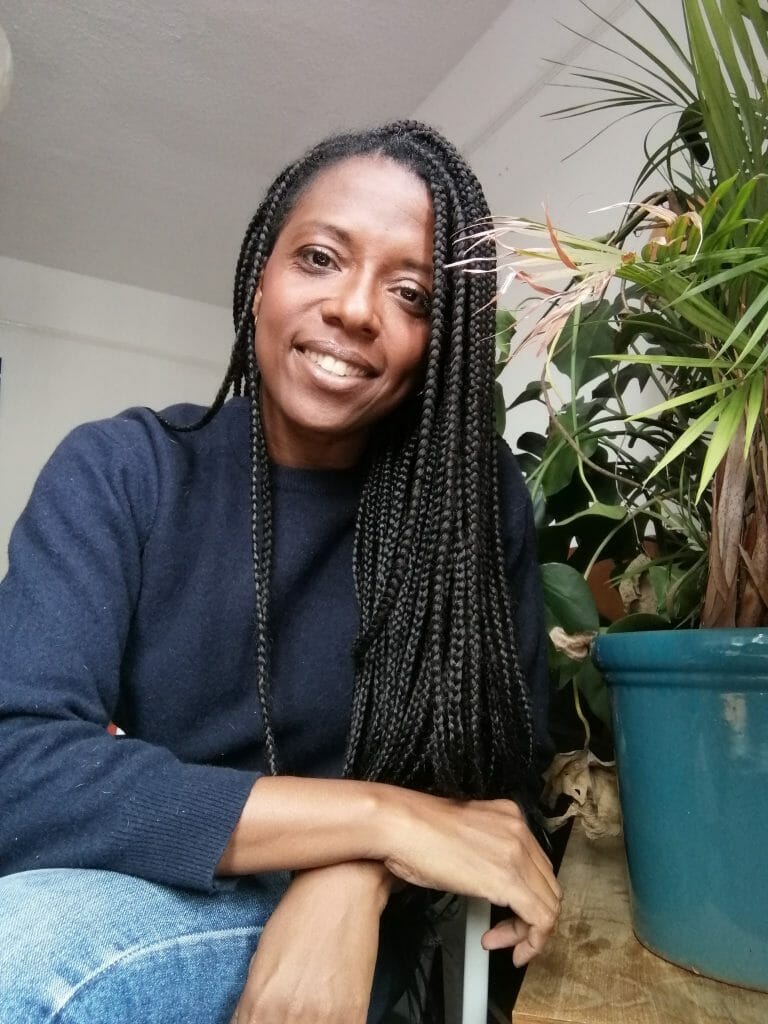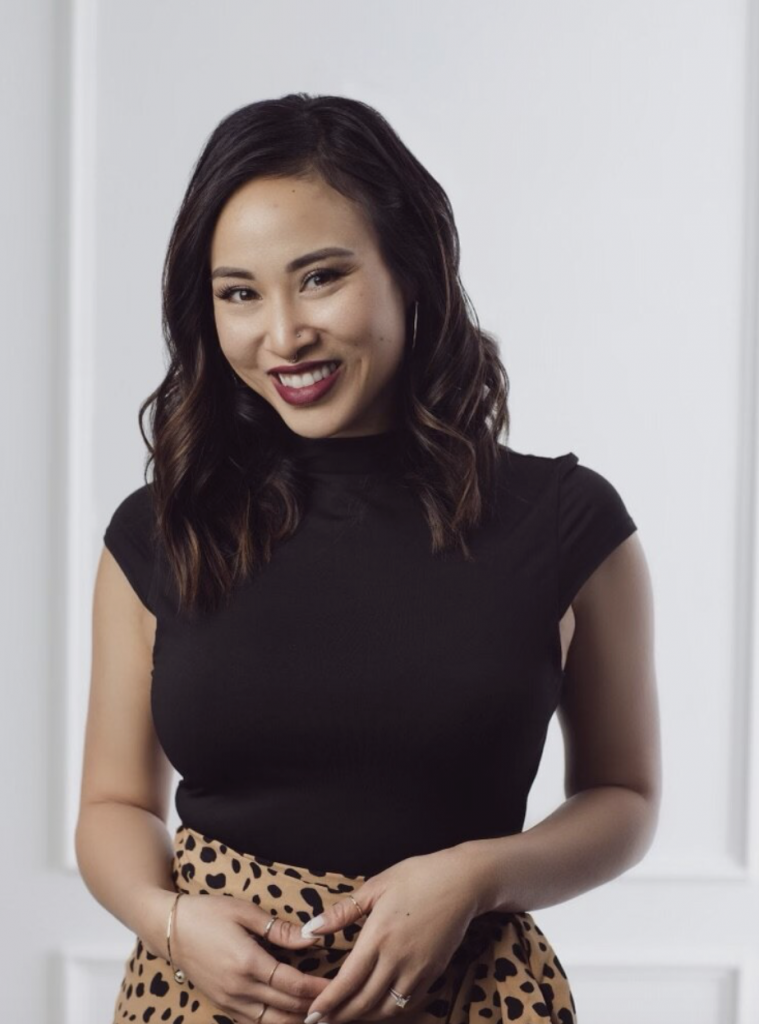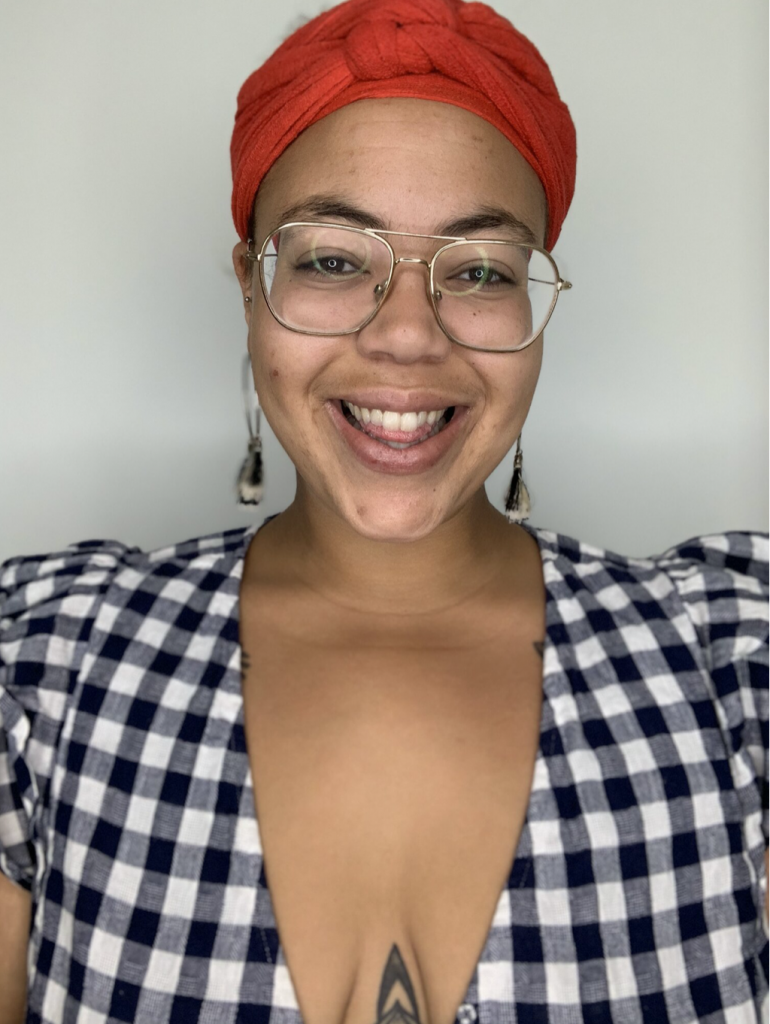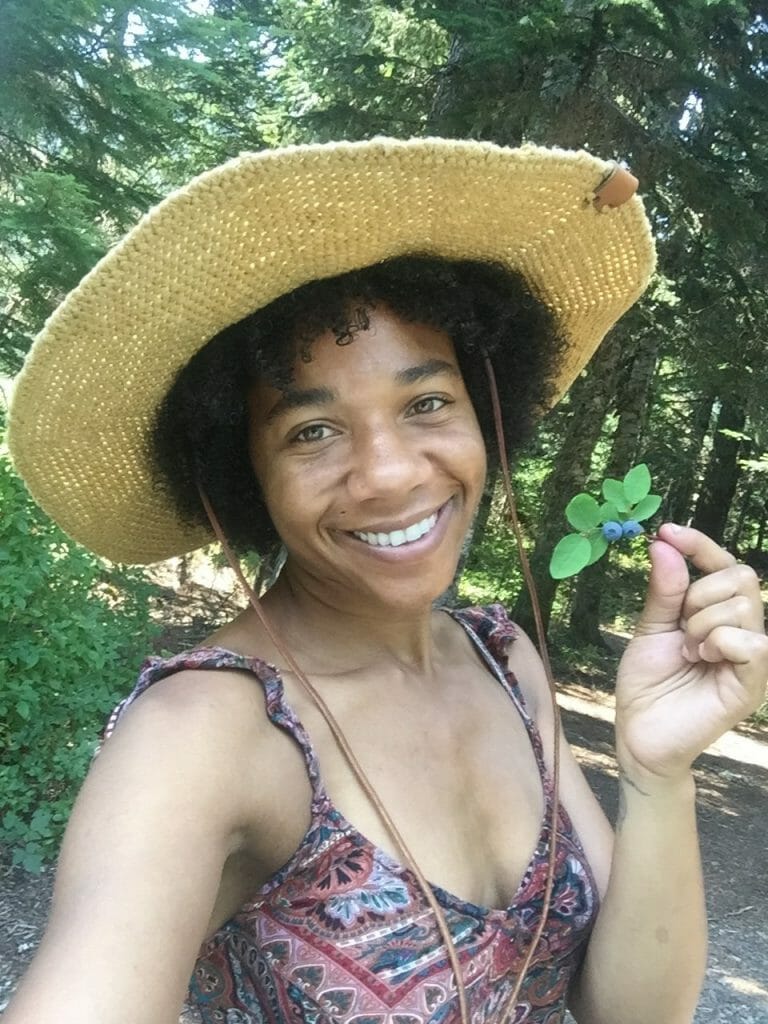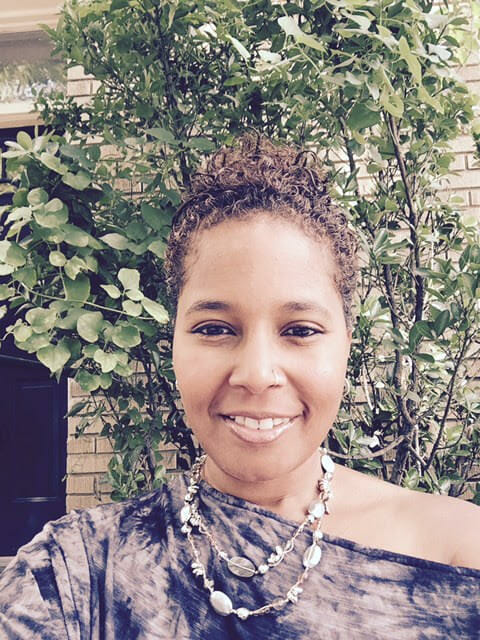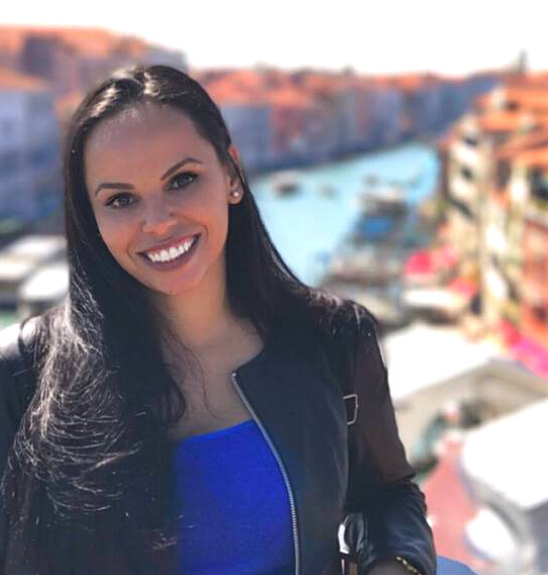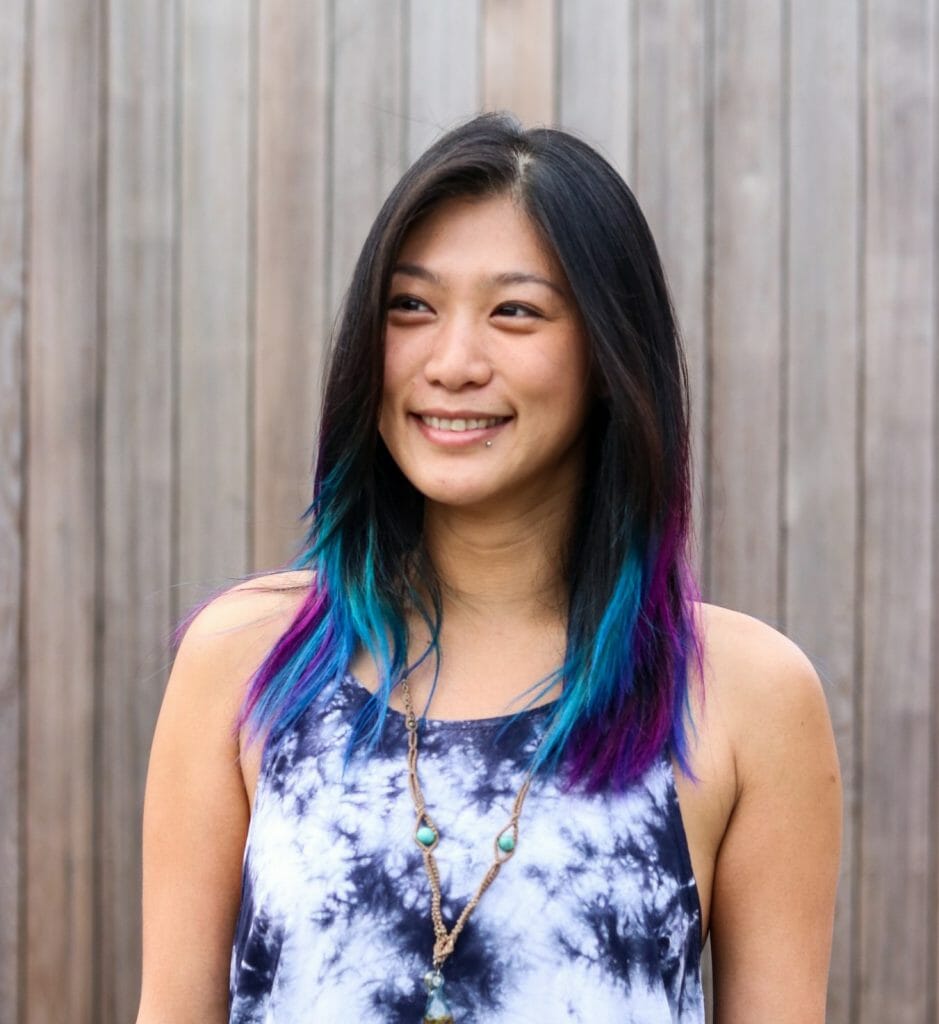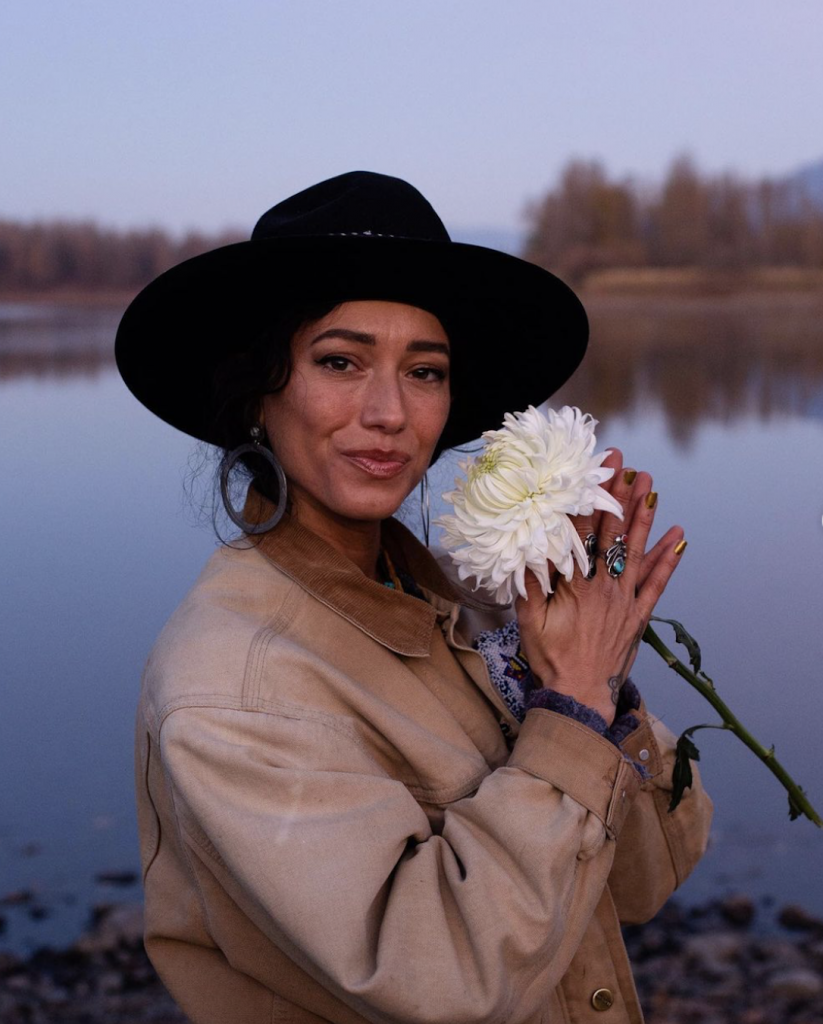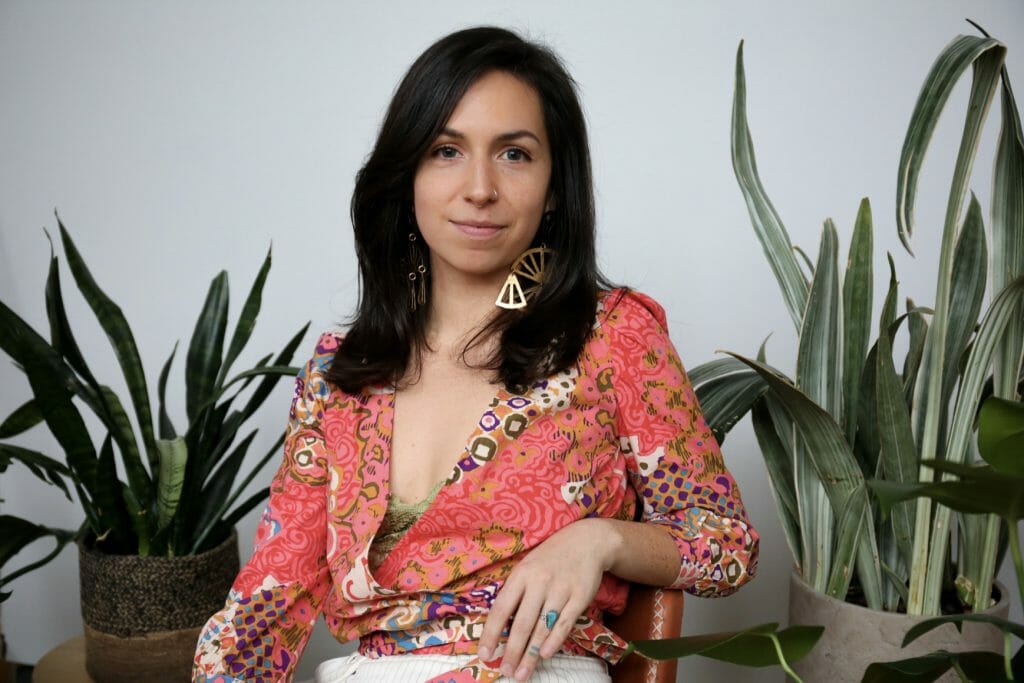By Rebecca Martinez
Nine women of color who are working hard to ensure their communities have access and representation in the psychedelic movement
As interest in psychedelic medicine explodes, it is trailed by conversation about representation and access. From leaders, authors and filmmakers, to researchers and clinical study participants, one simple fact is clear: The psychedelic community is disproportionately white. The recent global focus on racial inequity and social justice has called us all to reflect on our impact and seek out tangible ways to show up for communities of color. Now, this conversation has reached the psychedelic community and called leaders to task. Are we ready to explore why the movement is so homogenous, and to learn from leaders of color who can help us shift and evolve?
While psychedelic press coverage focuses on hand-wringing over the privileged corporate takeover, there is a more hopeful subculture emerging. Around the world there are visionary and collaborative leaders who aren’t waiting for an invitation from the vanguard of psychedelic elites. We spoke with nine women of color who are shaping psychedelic culture at the grassroots level and helping to create more inclusive spaces within the movement for global healing.
Buki Fadipe, Founder Adventures in Om
Buki Fadipe, founder of Adventures In Om, is a transformational guide, artist, and psychedelic practitioner in training based in London, England. Her work focuses on empowering individuals to take part in their own healing and consider all aspects of the self: emotional, physical, environmental, spiritual and psychological. “When we self-heal, we do so for our lineage, community, collective, Mother Earth and all living beings,” Fadipe says.
In the future of psychedelics, Fadipe hopes to see better representation and access.
“Accessibility is a big issue,” she says. “The way the industry is currently heading does not leave much room for focusing on marginalized groups. These medicines are being worked into a psychiatric framework, a system that is already incredibly dismissive of those from lower economic brackets who are often most in need.”
Fadipe’s goal is to positively disrupt the conversation, one which she says overemphasizes the clinical model and dependence on quick fixes, pharmaceutical medicines, and years of ineffective talk therapy.
“This is an emerging field,” she continues. “How can we map its scope without more diverse data coming from a realistic representation of society? I hope that the future will lead us to see more leadership from BIPOC and women who need representation across the industry, from clinical research and decriminalization to harm reduction, education and integration.”
Jenn So, Founder SO Searching Oneself
As a femme embodied person from a family of Viet-Khmer immigrant refugees, Jenn So, LCSW and founder of SO Searching Oneself in Washington, USA, is passionate about generational healing. So has worked as a professional social worker for the past 14 years, and her private practice specializes in racial trauma, adverse childhood experiences, and intimate partner violence. She first became intrigued about the healing potential of psychedelics after witnessing firsthand how psilocybin transformed her cousin’s life.
“Psychedelic-assisted therapy could help someone who has experienced trauma return to a specific moment in their memory and know they can be safely walked out of it,” So explains. She emphasizes the importance of trained professionals and safe environments.
“Western life is disconnected from the idea of things being passed down generation to generation. We don’t live with our elders. We don’t have opportunities to be closely involved with their lives and experiences the way traditional cultures do,” So says. She believes we are just beginning to appreciate the way trauma impacts the body and family lineage.
“These medicines are being worked into a psychiatric framework, a system that is already incredibly dismissive of those from lower economic brackets who are often most in need.”
–Buki Fadipe
Is the mental health community ready to take a serious look at the potential of psychedelic medicine? So isn’t sure.
“The stigma around psychedelics is largely because we don’t fully understand them,” she says. “We humans believe that what we know is all there is to know, so new information is met with skepticism and fear. The mental health community isn’t immune to these attitudes.”
So hopes to bridge the conversation and help mental health practitioners better understand psychedelic medicines.
Charlotte James, Co-Founder The Ancestor Project
When co-founders of The Ancestor Project (formerly The Sabina Project) Charlotte James and Dre Wright met, they connected over their shared experiences in white medicine spaces and the recognition of the need for BIPOC-centered healing environments. They launched The Ancestor Project (TAP) in 2019 with a focus on Baltimore-based events, then shifted online when the pandemic hit.
James outlines some tangible steps the psychedelic community can take to better support Black community members: “We invite White folx to buy our Psychedelic Anti-Racism workbook. To sit in their discomfort as they unravel privilege and find their role in the collective liberation movement.” James continues, “Also, recognize that racism causes trauma, [and so] treat Black and BIPOC folx with the same trauma-informed care you provide others.”
The mantle of leadership is heavy for a woman of color navigating her own healing path while working to further conversations about psychedelics as medicine. James emphasizes how important it is to slow down. “I really try to live my life in ceremony. I have a massive toolbox of practices and technologies that support me: sitting in ceremony, practicing Kemetic yoga with my partner, spending time in nature, dance, meditation, drinking lots of water, and building a healthy, shameless relationship with food. I would say though, when you’re walking in your purpose, the work is less draining–even when it is really intense.”
James shared about TAP’s recent name change, and the importance of modeling accountability:
“We have to walk the walk. We can’t be out here holding White folx accountable to their sh*t and not also reflecting on the ways that we have deeply internalized their ways of being to the point that the system becomes self-replicating. It’s okay to be vulnerable and admit when you have self-reflected and recognized a misstep. I’m grateful for the humans who support us as we do our own liberation work, and to the ancestors, spirit guides, and relatives who are the true geniuses and creators of this work.”
Elan Hagens, Co-Founder Fruiting Bodies Collective
Elan Hagens is the co-founder of the Fruiting Bodies Collective in Oregon, USA, which was born out of a need for education, advocacy, and community within the state’s new psilocybin therapy program.
“Just inviting people of color into the scene or making options financially accessible isn’t enough,” Hagens explains. “We need to consider why communities of color aren’t as aware of or interested in psychedelics. We need to understand the history of the War on Drugs and what can happen if we invite people into vulnerable healing spaces and then they return to a world that can be dehumanizing.”
Hagens also explains the need to be mindful of the language we use. “When enthusiastic advocates talk about “magic mushrooms” and “tripping”, we can lose a lot of people due to stigma and cultural connotation. Instead, can we talk about these medicines with respect and in a new way that people from all walks of life can understand and relate to? Healing goes beyond one subculture. We all have hearts and souls and an innate ability to heal in the right conditions.”
“We have to walk the walk. We can’t be out here holding White folx accountable to their sh*t and not also reflecting on the ways that we have deeply internalized their ways of being to the point that the system becomes self-replicating. It’s okay to be vulnerable and admit when you have self-reflected and recognized a misstep.”
–Charlotte James
Ultimately, healing must go beyond the individual. The founders at Fruiting Bodies believe that individual healing and societal change are inseparable. Beyond helping shape Oregon’s program, their mission is to shift the narrative and destigmatize psychedelic medicine through relationship building and storytelling.
*Note: Elan Hagens is co-founders with Rebecca Martinez, who authored this article.
Robin Divine, Founder Black People Trip
Robin Divine is the founder of Black People Trip, an online community with a mission to raise awareness, destigmatize, teach harm reduction, and create safer spaces for Black women in psychedelics.
“There is such a stigma around drug use (as well as therapy) which makes the idea of psychedelic therapy taboo for many Black people,” Divine says. “We need to see the faces and hear the stories of people who look like us in order to begin to break down these outdated ways of thinking.”
Divine explains that Black communities are traumatized. She sees psychedelics as a way for people to take healing into their own hands, down a path to wellness that exists beyond Western medicine.
“I invite white community members to get involved. If you are truly committed to equity in psychedelics, then take action. If you have the resources, then donate money to organizations that are doing the work to create better access in Black communities. I’d also ask them to respect the idea that Black people need their own spaces to heal that don’t involve them. In short: take action, and honor our space.”
Jessika Lagarde & Tian Daphne, Co-Founders Women on Psychedelics
Jessika Lagarde and Tian Daphne are the co-founders of Women on Psychedelics (WOOP), which began organically during the COVID-19 lockdown while the two were volunteering for a mushroom-related initiative. “Having ourselves experienced the healing and transformative power of psychedelics, we saw a glaring need to not only normalize the talk around psychedelics, but to specifically work to end the stigmatization around women’s mental health and substance use,” Lagarde explains.
The promising research inspired them to become advocates. But as they dove deeper, they quickly noticed a lack of diversity in the psychedelic space. “Despite having disproportionately higher rates of trauma, people of color and women remain underrepresented in research amongst participants, as well as in underground psychedelic communities and the movement toward decriminalization and legalization,” Lagarde adds.
“Through Women on Psychedelics, we hope to connect women through social, creative, political, and educational content and activities. We truly believe that everyone should have the freedom and ability to access psychedelics for their own healing and growth.”
Mariah Makalapua, Founder the Medicine Collective
Mariah Makalapua is a Hawaiian and mixed Native North American artist and mother who is the founder of the Medicine Collective in Oregon, USA. Since 2017, the Medicine Collective has combined art and medicine for the purpose of healing people and the planet. Makalapua’s mission is to provide safe and respectful healing experiences rooted in indigenous traditions.
Makalapua believes respect for indigenous rights and wisdom is an expression of an individual’s healing process. “Trauma healing has to do with diving into your upbringing, your ancestry, and ultimately, decolonizing and clearing your own lineage and understanding where you come from. We all have ancestors. No matter who you are, there is a reality of what colonialism and patriarchy did to your family.”
“We need to consider why communities of color aren’t as aware of or interested in psychedelics. We need to understand the history of the War on Drugs and what can happen if we invite people into vulnerable healing spaces and then they return to a world that can be dehumanizing.”
–Elan Hagens
If people understand these things, she says, we will no longer need to argue about cultural appropriation because we will develop a heart level-understanding of it. “You wouldn’t attend an ayahuasca ceremony and then think a medicine leadership role is yours to take. You just wouldn’t be having that jump. It’s not a healed or whole approach.”
In regards to Oregon’s legal psilocybin therapy program, Makalapua advocates for wisdom, accountability and intentionality.
“Historically, indigenous communities did not exist in a vacuum in their healing. The medicine was part of the larger culture and there was a collective consciousness around it. They understood: This work is terrifying, necessary, and we must go to the right people. But this collectivism has been lost from modern culture. We need support in watering the seeds planted during ceremony. It is deep, inner, relational work: making changes, making boundaries. It requires friendship, community, and at least a few close people who can support and guide you through that change.”
“The mushrooms are going to be mushrooms no matter what we do,” Makalapua continues. “I want to protect their sacredness. It’s like protecting your grandmother. You know she’s strong and a badass, but you’re not going to let her go and do something dangerous. It’s the same with the mushrooms; we should respect them, love them, and help carry their groceries, so to speak.”
Hanifa Nayo Washington, Founder One Village Healing
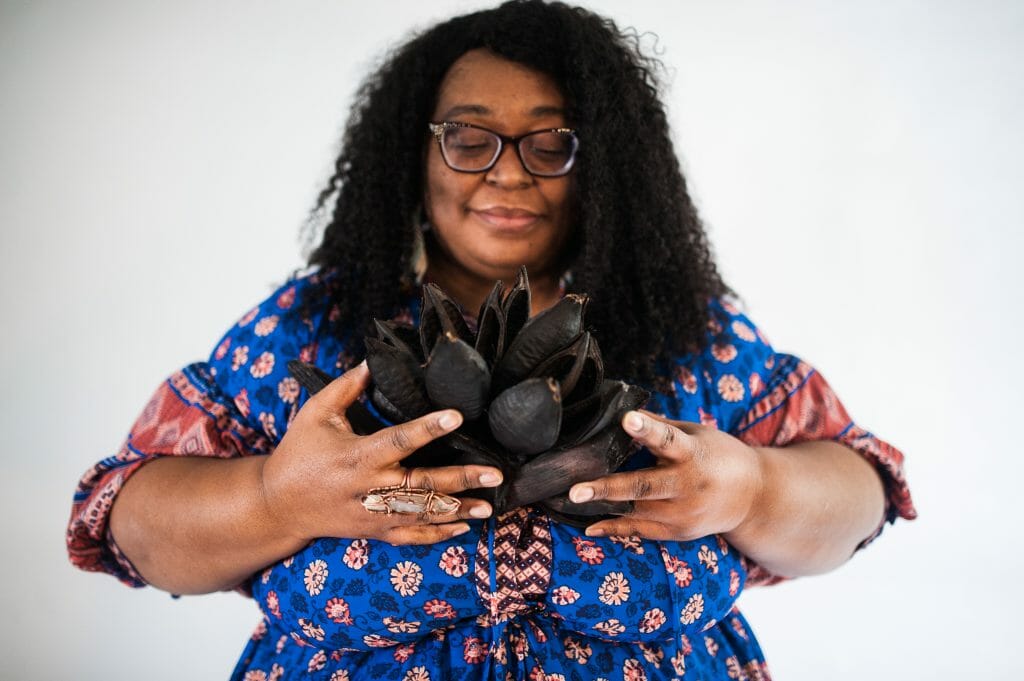
Photo credit: Rachel Liu
Hanifa Nayo Washington is an award winning cultural artivist and sacred activist combining arts, healing, and activism for the last 20+ years. Based in Connecticut, USA, Washington is the founder and principal organizer of One Village Healing, cultivator of beloved community at the Fireside Project, director of community engagement for CEIO, and a founding member of several emerging psychedelic initiatives, including the Equity in Psychedelic Therapy Initiative.
In 2017 she released her third album, Mantras for the Revolution. In December 2018 Washington received a Phenomenal Women Arts Award from the Arts Council of Greater New Haven for her contributions and achievements in the arts. She is currently working on a storytelling project called Growing Wilder, which is expected in 2022.
Washington explains how her own healing experiences led her to the intersection of psychedelic medicines and social transformation:
“Going into ceremony and creating sacred spaces…helped me deconstruct the poisons of internalized systems of oppression. These allies, these plant medicines, have helped me to unhook these things from my body and mindset, and allow me to be in deeper relationship with myself and others in ways that are not poisoned,” she says.
What makes Washington’s leadership stand out is both her joy and her specificity. One vision many emerging leaders share within the psychedelic space is inclusion. Washington carries a torch into the unknown and helps to illuminate the “how” by shaping practical models with which to realize this shared vision. Equity and access are more than buzzwords at One Village Healing–they are the pillars that form the very structure and breath of the organization, which currently provides seven online wellness sessions for free to the community.
“Historically, indigenous communities did not exist in a vacuum in their healing. The medicine was part of the larger culture and there was a collective consciousness around it. They understood: This work is terrifying, necessary, and we must go to the right people.”
–Mariah Makalapua
The immense value of Fireside Project’s Psychedelic Peer Support Line is multiplied by their attention to “providing compassionate, accessible, and culturally responsive peer support, educating the public, and furthering psychedelic research, while embracing practices that increase equity, power sharing, and belonging within the psychedelic movement,” Washington says.
In order to create safer spaces and experiences for marginalized communities, Washington suggests a few practical steps:
- Normalize and furthermore, require, inner work as a fundamental part of all psychedelic organizations, businesses, and institutions. “That means creating space and time within the work schedule for individual and collective learning, to practice and imagine ways of being that support healing from the trauma of oppressive systems.”
- Within this process, trust and invest in affinity integration spaces.
- Listen to, fund, and invest in individuals, businesses, projects, and initiatives led by people who have been impacted the most by systems of oppression.
“Without representation in leadership,” she says, “I’m pretty convinced that these aforementioned aspects will not happen.”
Conclusion
The common threads that come through these interviews help weave together a larger story. It’s a vision for global healing that doesn’t stop at getting over depression or healing family trauma. It’s a call to recognize our interconnectedness with one another and the Earth, and to commit to the work which enables psychedelic insights to transform us into more engaged, justice-focused citizens. Because of their intersectional identities, women of color offer the presence, leadership and perspective which are essential to the integrity of the psychedelics movement. We have endless opportunities to lift them up and learn from them as we grow and heal together in the years to come. Let’s begin today.
About the Author
Rebecca Martinez is a Portland, Oregon-based writer, parent and community organizer. She is a co-founder of the Fruiting Bodies Collective, an advocacy group, podcast and multimedia platform exploring the intersections between healing justice and the psychedelics movement.

